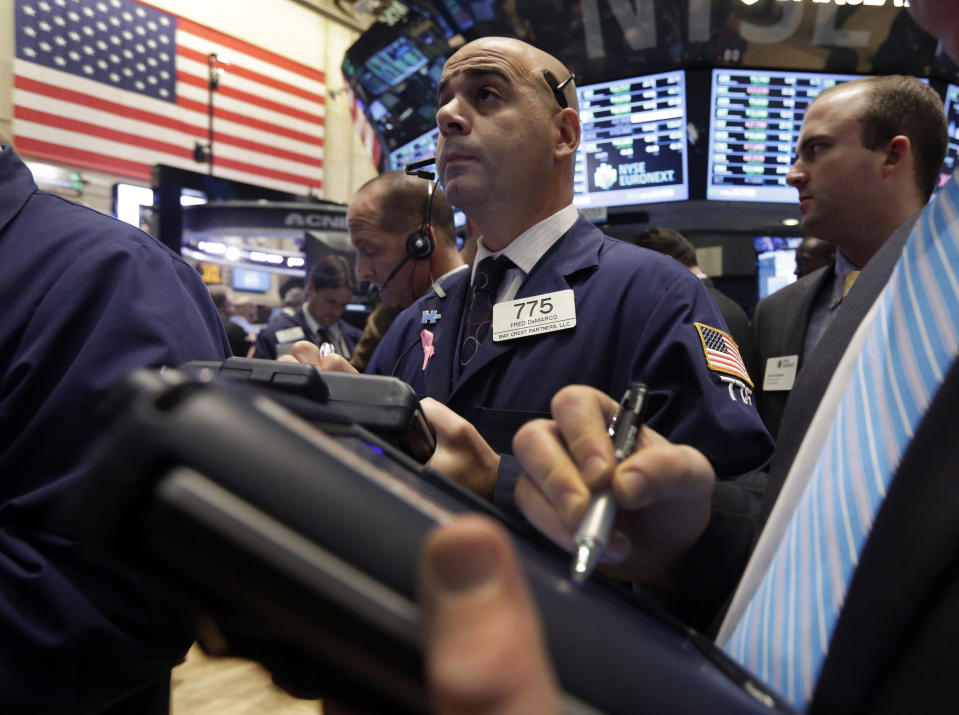US stocks mixed as investors wait on debt news
Stocks are mixed on Wall Street as debt deal talks in Washington fail to impress investors

In this Thursday, Oct. 10, 2013 photo, trader Fred DeMarco, center, works on the floor of the New York Stock Exchange. Futures are mixed, Tuesday, Oct. 15, 2013, with Wall Street somewhat optimistic that lawmakers can overcome the dysfunction that has led to the 15th consecutive day of a partial government shutdown. (AP Photo/Richard Drew)
·Associated PressThere's deal talk in Washington. On Wall Street, it's wait-and-see.
The big stock indexes were mixed on Tuesday as Republican and Democratic leaders in the Senate reported that a deal over the nation's borrowing limit appears to be getting closer.
Unless the borrowing limit is raised, the U.S. will bump up against a Thursday deadline that could lead to a default on government debt. That possibility has rattled markets all month.
There was reason for Wall Street to be noncommittal on Tuesday. For one, it wasn't clear whether House Republicans will go along with whatever the Senate works out. Also, any deal reached this week might simply set up another showdown a few months down the road.
In late morning trading, the Dow Jones industrial average was down three points at 15,298. The Standard & Poor's 500 index was up one point at 1,711. The Nasdaq composite was up nine points at 3,824.
Six of 10 industry groups in the S&P 500 rose, with the biggest declines in consumer discretionary and utility stocks. Financial and technology stocks had the biggest gains.
The general direction for stocks was down all morning, with indexes about flat as midday neared. It was clear that traders were hanging on every word out of Washington. The losses on the Dow shrank by about 40 points during a short press conference by House Speaker John Boehner.
Uri Landesman, president of Platinum Partners, said he thinks there will be a deal, but that investors are making a mistake to focus on it. The economy has more risks than that. He believes U.S. growth is likely to be more sluggish than anticipated, and conflicts with Iran and Syria could blow up. Investors aren't accounting for the risk of "a short-term spike in energy prices, which would be very deleterious to a shaky economy," he said.
"Oil could go to $140 short-term," Landesman said. "Trust me — this global economy cannot handle $140 oil."
Oil prices spiked that high in 2008. On Tuesday, the price of oil fell 40 cents to $102.
Citigroup rose 11 cents to $49.71, reversing losses from earlier in the morning after it reported a smaller profit because of a drop in its bond business, investment banking and mortgage refinances.
Johnson & Johnson rose $51 cents to $90.30 after reporting a bigger third-quarter profit and raising its earnings forecast for the year.
The yield on the 10-year T-note rose to 2.72 percent, from 2.69 percent on Friday. Bond trading was closed Monday for Columbus Day.
Stocks in Europe rose. Germany's DAX rose 0.7 percent and Britain's FTSE 100 rose 0.8 percent.
